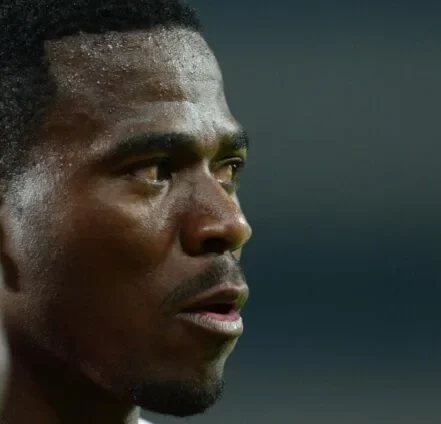The Senzo Meyiwa murder trial continues in the Pretoria High Court on Thursday after a day filled with drama on Wednesday.
Warrant Officer Meshack Makhubo’s testimony on Wednesday uncovered a web of contradictions and division among investigators assigned to probe the soccer star’s murder.
Makhubo took the stand after the defence was granted permission to reopen its case in the trial within a trial.
For the past couple of months, the main Meyiwa trial has been put on hold to determine the admissibility of two confession statements allegedly deposed by accused number one and accused number two, respectively.
The court has heard varying versions of the confessions, with the defence alleging that the two suspects were coerced into signing already-prepared confessions by means of assault and that they did not read their rights.
However, the state disputed this version, asserting through evidence brought by witnesses that the accused “willingly confessed”.
The defence rested its case in February, and the trial was postponed to allow both the state and the defence to prepare their heads of arguments.
Reopening of the trial within a trial
However, on Monday, the state requested to reopen its case and call three more witnesses from the South African Police Service.
During the proceedings on Wednesday, the state objected to the reopening of the trial within a trial, arguing that the defence had concluded its case and had agreed to call other witnesses during the main trial.
Prosecutor George Baloyi argued that introducing new witnesses would necessitate additional time, as it would bring forth new evidence.
He emphasised the urgency of concluding the case promptly, noting its prolonged duration. “If this application is allowed, new evidence will be adduced. All counsel will have to amend their heads of argument,” he said.
Baloyi further pointed out that some of the witnesses proposed by the defence might overlap with those planned by the state for the main trial.
Judge Ratha Mokgoatlheng clarified that if this were the case, the defence could proceed with its witnesses, provided they were not on the state’s list, as precedence is given to the state’s witnesses.
Staggering 40 investigators
Consequently, only Makhubo testified.
Makhubo disclosed that, at some point, a staggering 40 investigators were tasked with probing the death of the revered soccer star.
However, conflicting opinions emerged within the investigative team, leading to a rift. The discord stemmed from disparate information regarding Meyiwa’s killing, which Makhubo learned about during a meeting in 2019.
Makhubo, appointed as the investigating officer by the police minister and national police commissioner, indicated that the differing opinions ultimately split the team into two factions.
Moreover, Makhubo highlighted a lack of clarity regarding leadership within the investigative team, stating that no specific official was appointed as the leader due to everyone holding the same rank.
This organisational ambiguity potentially contributed to communication lapses, as evidenced by Makhubo’s admission of not being informed when suspects were apprehended.
Following Makhubo’s testimony, the court proceeded to hear arguments concluding the trial within a trial by the state.
Closing arguments
Closing his argument, Baloyi asserted that the confessions were made before justices of the peace.
He addressed the notion that their rights were not explained, stating that it was not part of the grounds laid for objection.
Baloyi posed a rhetorical question about how the police would have tailored the story to fit the evidence against the accused.
He questioned when the proforma would have been filled out and when the police would have concocted the story contained in the confession.
He cited testimony indicating that accused number one made corrections when the statement was read back to him, questioning whether this is the behaviour of someone forced to confess.
The state contended that the accused’s rights were explained at every critical step, including upon arrest.
Baloyi questioned how the police would have known what to write in the statements, concluding by asserting that the version of the accused should be rejected.
Arguments are set to continue on Thursday.



